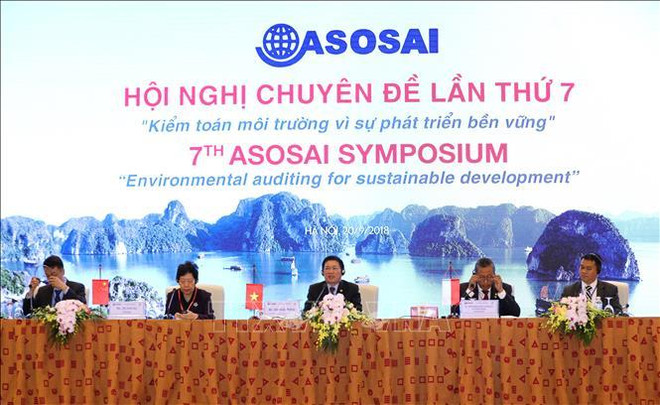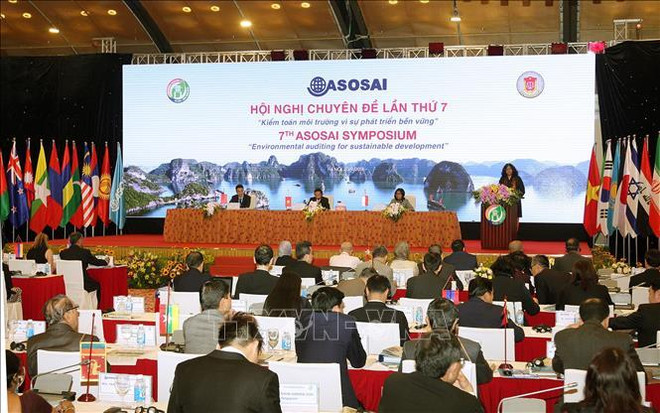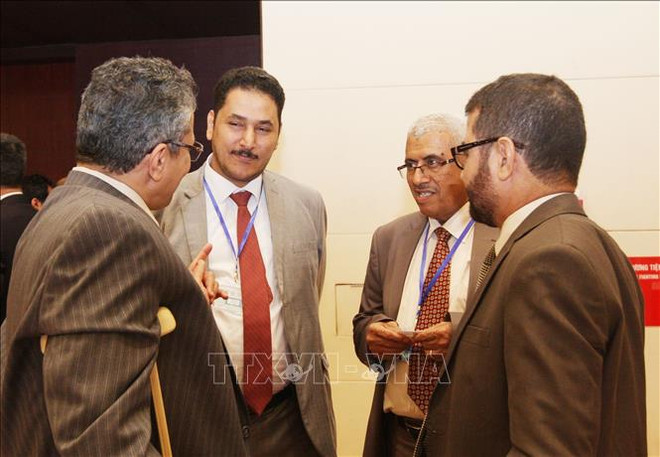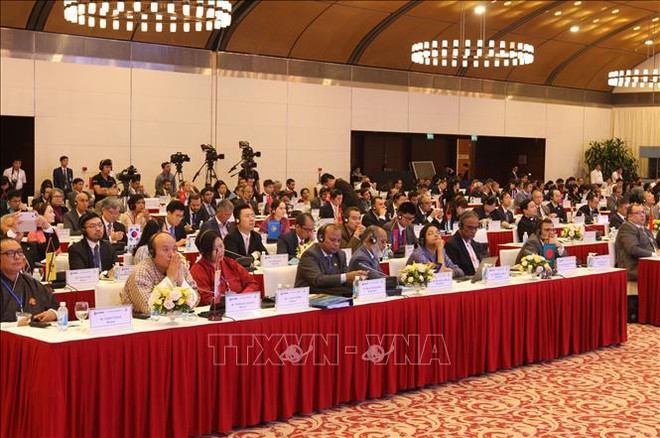Hanoi (VNA) – Delegates from the Asian Organisations of Supreme Audit Institutions (ASOSAI) shared their experience in environmental auditing for sustainable development at a symposium that took place on September 20 in Hanoi as part of the ongoing 14th ASOSAI Assembly.
The 7th symposium that includes two plenary sessions and a group discussion was co-chaired by State Auditor General Ho Duc Phoc and the heads of China and Indonesia supreme audit institutions (SAIs).
In his opening speech, State Auditor General Ho Duc Phoc said Vietnam attaches importance to environmental protection and sustainable development in its socio-economic development policies and strategies.
Vietnam has focused its resources on environmental auditing to ensure the enforcement of the Government’s policies on environmental protection. Since 2010, the State Audit of Vietnam (SAV) has carried out five environmental audits annually on a variety of fields, including management of forests, land, clean water, wastes, mineral mining and low carbon energy efficiency.
Phoc said delegates should take advantage of the symposium to introduce their nations’ environmental auditing action plans, particularly the methods, approaches, priorities and challenges in the work.
Archana P. Shirsat, Deputy Director of the INTOSAI Development Initiative (IDI), highlighted the benefits and importance of implementing the UN Sustainable Development Goals (SDGs) while underlining the central role played by SAIs in ensuring independent supervision in the implementation of SDGs.
“SAIs are able to make a difference to the lives of citizens by implementing their SDGs auditing, therefore they should carry out the task in an active manner in order not to be left behind,” she said.
Li Feng, representing the China SAI, introduced the latest methods used by the Chinese agency to evaluate policy making, accountability and technical assistance in environmental auditing.
He also shared the China SAI’s experience in auditing works to protect the ecosystem of the economic ring along the Yangtze River, among other audit projects on natural resources and environmental big data.
Ramu Prasad Dotel from the Nepal SAI stressed the need to include environmental auditing into national socio-economic development strategies and programmes towards the UN Sustainable Development Goals.
The Nepal SAI representative suggested member SAIs strengthen their supervision, making overall reports and improving accountability in ensuring the public spending, while increasing their budget for capacity building on developing and managing data on environmental auditing.
According to him, Nepal SAI has made 150 auditing proposals to its Government that help improve the nation’s public finance.
For his part, Nguyen Quang Thanh, representing the Vietnam SAI, pointed to Vietnam’s action plans and its achievements in environment protection and sustainable development as well as the role played by the SAV in the implementation of these action plans.
According to Thanh, the SAV has implemented numerous environmental auditing projects, including the drainage work in Hanoi, water environment in the Mekong Delta region, mineral mining in several localities, and environmental management in industrial parks nationwide.
“The auditing outcomes have contributed to revising the legal framework on environment management while raising organisations and individuals’ awareness of observing the country’s regulations on environment protection,” Thanh said.
By attending training courses and seminars on environmental audit within the INTOSAI, ASOSAI and ASEANSAI communities, the SAV has gained valuable experience and applied what it has learned to auditing of wastewater projects in industrial parks, he said.
Over three sessions, delegates heard reports of member SAIs and actively joined group discussions on knowledge transferring, capacity building and challenges in environmental auditing.
Addressing the conclusion of the symposium, Bahtiar Arif, head of the Indonesia SAI, said the reports heard in the event revealed both achievements and challenges in the implementation of the UN’s SDGs.
Head of the China SAI Hu Zejun said the achievements in environmental auditing have benefited people of all member SAIs’ nations, thus enhancing the value of their activities.
For his part, State Auditor General Ho Duc Phoc spoke highly of the active participation of delegates in the group discussions in the symposium.
He suggested member SAIs strengthen cooperation and exchange of experience, knowledge and technology for a better quality of environmental auditing.-VNA
































